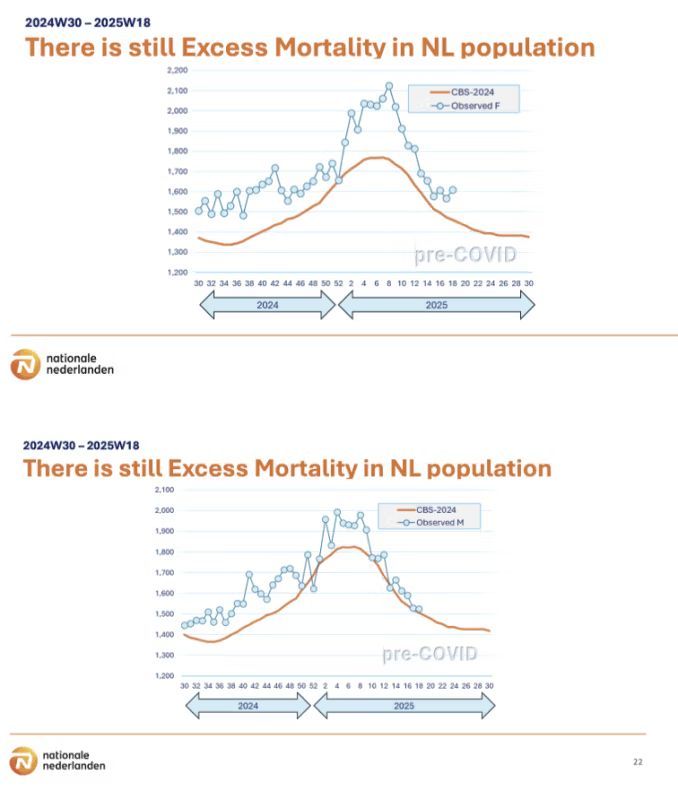The statement: ‘It is wise to vaccinate children (12-17 years) against COVID-19 as well’.
Paediatricians recommend vaccinating children between the ages of 12 and 17. The rapid rise of the more contagious delta variant makes this next step in the vaccination programme necessary, according to them. Two experts respond to the statement: ‘It’s wise to vaccinate children (12-17 years) against COVID-19 as well’.
YES
Attje Kuiken, PvdA member of parliament, spokesperson on Covid-19-related issues
Why are you in favour of vaccinating children (12-17 years)?
“That’s because of a number of things. Of course, I look at the advice of paediatricians and the Health Council. First, I am in favour because young people can protect themselves with it. Although the percentage is not large, there are certainly young people who suffer from Long Covid complaints. Secondly, many young people themselves would also like a vaccine to regain their full freedom. Many 16–17-year-olds are in secondary vocational education (MBO) or go on to higher vocational education (HBO), and in that group you can feel the desire strongly. Thirdly, it helps to protect our entire society, although the latter should not be the deciding argument. Finally, the Health Council indicated that schools no longer need to be closed if the group of vaccinated persons is large enough, so it reduces the disadvantage of young people who have had to be educated at home for a long time. The most important thing remains that it is about proper information of advantages and disadvantages and making one’s own choice. Offer freedom of choice, instead of imposing moral pressure.”
Do you feel that children can make an informed choice in complete freedom?
“I think so, especially 16–17-year-olds. Young people should, in consultation with their parents, and without the influence of social or moral pressure, make their own choice about whether they want the vaccine. I am having this discussion with my daughter, who will soon be 12. She talks about it with her peers and asks me about the pros and cons. She is well informed and follows the media
coverage. I notice that she is already able to talk about this in a reasoned way; she thinks that protecting society is important. If there are elderly people or children who absolutely do not want vaccination, then we must respect that consideration. Making your own, personal choice in a well-informed way, because you really want to, that is the most important thing.
By vaccinating children, aren’t we putting adult interests above those of the children?
“It is absolutely not an obligation. It would be a shame not to offer this option, because research shows that the willingness to vaccinate is quite high among this group. Of course, it does help to combat new mutations such as the delta variant and to significantly increase the vaccination rate. This increases the overall protection of society, but first and foremost, of course, young people must want it for their own sake. I suspect that a good portion of this group would like to get their own vaccination certificate, physically pursue higher education and provide extra protection for their vulnerable grandparents, fathers or mothers.”
Do the advantages outweigh the disadvantages?
“The pros and cons have been weighed up previously by paediatricians and the Health Council, which makes me a supporter. There are always ethical dilemmas because the risk of children falling ill is simply lower. It is also the case that vaccinating our children means that it will take longer for the Netherlands to provide vaccines to other countries. These dilemmas surround the vaccination of
children, which is why fully accurate information for children and parents is important. Dilemmas are a fact of life, but in my opinion the benefits prevail. This is not only my opinion, but also that of the vast majority of the Lower House.”
And the stories about possible severe side effects in children?
“There are indeed side effects, but it is not the case that children suffer from them permanently. They are side effects that do not cause permanent damage and are therefore repairable.”
NO
Dr. Carla Peeters, immunologist, former employee of RIVM and health care administrator, now director of COBALA Good Care Feels Better®
Why are you against vaccinating children (aged 12-17)?
“Vaccinating healthy children is unnecessary and risky. There is insufficient insight into the effectiveness and safety of the vaccine for children and long-term effects are unknown. To promote a vaccine for this age group, the availability of more vaccine safety data is needed. Based on current knowledge, it is better for healthy children to experience a natural infection than a possible risk of a serious side effect of the vaccine. In addition, the risk for healthy children of contracting a serious Covid-19 infection is exceptionally low. To date, two children in this age group have died from Covid-19 in the Netherlands, out of a total of 1.1 million children, both with underlying suffering. However, in the Netherlands there are 300 to 400 children under the age of 18 with the diagnosis of Long
Covid. Little is still known about the diagnosis of Long Covid, which is a collective name for many long-term symptoms. The main symptoms include fatigue, headaches, gastrointestinal complaints, depression and breathing difficulties. Not all children with Long Covid show a positive PCR test and/or antibodies. Based on current science, it cannot be ruled out that due to other factors during the coronary crisis, children experience indefinable health complaints that can be categorised under Long Covid.”
Could not vaccinating children make it possible to contain the virus more vigorously?
“That motivation is wrong, because then you assume that children do not have a natural immunity and/or cannot develop one. The government paints a one-sided picture – as if the body is only able to keep new virus variants in check after vaccination. According to research, healthy children seem to have a natural immunity that makes them less susceptible to coronaviruses such as SARS, MERS, and SARS-CoV-2. Infection with the SARS-CoV-2 virus in children usually occurs without (asymptomatic) or with mild complaints. Infection occurs mainly in the family from adult to child. Transmission of the virus between children or from child to adult is much less common. The RIVM states that vaccinating children reduces the reproduction rate – the extent to which the virus is spread – by 0.3 per cent. It is not known on which assumptions the RIVM is based. Predictions based on models have repeatedly failed during this corona pandemic. We need randomised and controlled trials to show whether vaccinating children can lead to lower infections in adults. Before that, we need to answer the ethical question of whether children can be exposed to risks to protect adults. In the current strategy, investing in improving the immune system of older people with chronic diseases is missed.”
Isn’t vaccinating children a way for society to prevent another lockdown in the future?
“Based on current knowledge, it is better to expose healthy children to a natural infection and thus contribute to the intended immunity in society. It now tends to lock down schools if not enough children are vaccinated or else the measures remain in place. That is nothing less than an indirect vaccination obligation. The moral pressure, the peer pressure that would then arise, would be enormous. When two divorced parents disagree about the choice, the child can decide for itself. Can you put a child under such great social pressure when there are no irrefutable benefits for them? Children have experienced too much stress in the past year. Their carefree childhood has been sacrificed for the sake of the vulnerable in society. Most of them have now been vaccinated, which has reduced the risks for vulnerable people and full hospitals. In any case, a lockdown has proven to be ineffective and a very harmful measure. The immune system of healthy young people is actually suppressed by continuous stress”.
What do you say to parents and children who will soon have to make the decision?
“There is still much uncertainty about the long-term effects of this vaccine in adults and children. The risk of a serious Covid-19 infection for healthy children is extremely low and research shows that children hardly infect adults. For healthy children, natural infection is better. For vulnerable children with chronic diseases, vaccination may be a consideration. Careful decision-making of the benefits and risks with the treating physician is recommended for these children. Coronavirus has become an endemic, seasonal virus and will continue to mutate itself. A resilient immune system offers protection against new variants, but my primary concern is also that it is a personal choice that each child must make with her/his parents, and that they should not suffer under moral pressure.



